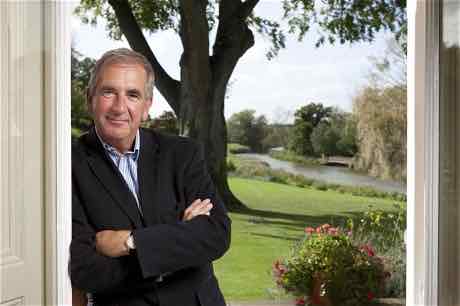
The Second Sleep by Robert Harris – Buy it on Amazon US – an elegant, post-apocalyptic thriller
A priest investigates a vicar’s untimely death in a future Britain where reason is banished by dogma
The title of the book refers to the once common practice of having a period of wakefulness in the middle of the night, before returning to bed. It’s a powerful image that posits the current climate, in which much of the country enjoys relative health, wealth and freedom from outdated superstitions, as a brief, lucid window between two long stretches of darkness.
The Second Sleep: the Sunday Times 1 bestselling novel
One of the ways you know a good novel is by the other books you reach for as comparisons. Robert Harris’s latest, The Second Sleep, is a work of speculative fiction set in Britain 800 years into the future, after a “systemic collapse of technical civilisation” known as the Apocalypse. Into the void of the “Dark Age” steps a rejuvenated and dogmatic church, whose authoritarian rule and obsessive suppression of heretical “scientism” ensure that people live in brutal and backward conditions.
Harris’s bleak imagined world issues a clarion call to the present, urging us to recognise the value of progress, the importance of woolly concepts like liberalism and the rule of law, and all the other ideals we’ve spent generations fighting for yet seem prepared to sacrifice on the altar of populism. For make no mistake, this novel may be set in a Wessex that’s at once futuristic and quasi-medieval, but it’s very much about the here and now, about Trump and Brexit and the Govian rejection of experts.
Christopher Fairfax is a newly ordained priest who serves under the sinister Bishop Pole of Exeter. He has been sent to a village, Addicott St George, deep in a valley often cut off by the violent storms that beset this future England. The vicar of the village, Father Lacy, has recently died, and Pole has dispatched Fairfax to bury the old priest.
Harris is a master of plotting and, in elegant, understated third-person prose, he ratchets the tension ever upwards. A mysterious figure appears at Lacy’s funeral, casting doubt on the accidental nature of the priest’s death. There is a strange tower in the woods – the Devil’s Chair – around which human bones are discovered. There’s the Proceedings and Papers of the Society of Antiquaries, the records of a heretical movement. There’s a letter from a Prof Morgenstern, winner of the 1999 Nobel prize for “physic”, which notes that in the pre-Apocalyptic past “London existed at any moment only six meals removed from starvation” and that “society has reached a level of sophistication that renders it uniquely vulnerable to total collapse”. Sure enough, the Apocalypse hits in 2025, with thousands dying from previously preventable diseases, and more killed in brutal internecine wars.
There’s the echo of Harris’s earlier Cicero Trilogy in the message of The Second Sleep: “All civilisations consider themselves invulnerable; history warns us that none is.”
As Harris’s plot moves towards its pleasingly bombastic ending, Fairfax’s faith is put to the test. The swiftness with which the priest overthrows his worldview feels slightly hurried, but then this is nothing if not a page-turner.
One Response
i don’t read much books but my relatives tend to read certain books. My father reads like futuristic fiction books than just classical books! i mean my mom would sometimes read classical books!